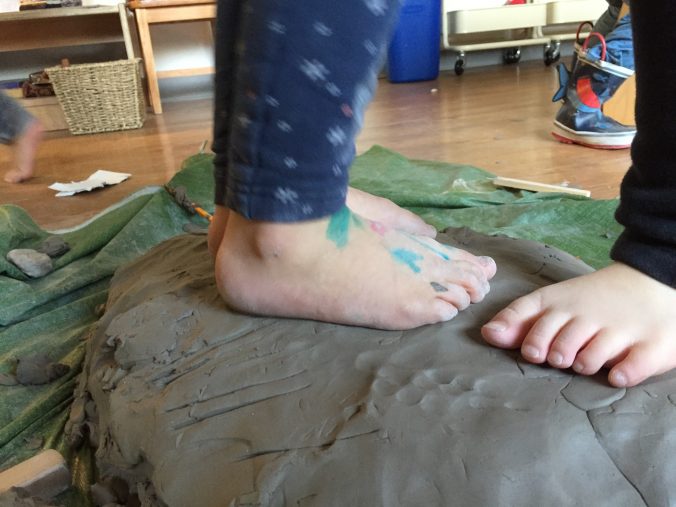“Through process drama, children do not simply absorb knowledge; they construct it, learning best when they are actively engaged, organizing knowledge and experiences in new ways towards a desired goal” -Brown & Pleydell (as cited in Brown, 2017, p. 165)
Working with children aged 18 months to 5 years old, in a designated Reggio Emilia learning centre, where we believe children are capable, active agents in their own learning (play being imperative for such), it can be difficult to imagine incoporating many of the structured, scheduled, educator driven drama exercises described in some literature concerning drama education. In addition, from a very early age, young children can be observed naturally generating, and participating in, dramatic play scenerios as one way of “ordering and making sense of their experiences” (Booth, 2005, p. 18). These playful dramatizations and sequences of role play are often elaborate, spanning days, weeks, months, and even years. The children transform themselves and their environments to suit their imagined characters, events, actions, and worlds. Immersed in such seemingly inherant dramatic productions, incooporating structured dramatic exercises can feel inconsequential and possibly disruptive.
On the other hand, knowing that children are naturally drawn into, and enjoy, drama senarios of their own making, makes them a valuable medium for inquiry and communication. By joining in these dramas, educators can help edge children, as well as themselves, towards to a type of play, creativity, inquiry, and learning that is fragile, that questions, wonders, attends, whiles, and that generates contemporary understandings. Joining in, and taking on a role within them, educators are able to observe, attend to their learning, while also extending, and inquiring into, their thinking, reflections, and explorations. We become collectively attentive to the choices, experiences, and perspectives of those who are a part of the drama. When educators are encouraged to approach children, not as leaders, but as important figures in their play, children are able to fold into active and/or director roles with ease and fluidity. The typical balance of authority is altered.
“Educators therefore need to be ready to take on roles which are less powerful than children’s roles to give them the experience of power.” (McGabe, 2020, p.10)
As McNaughton (2004) has written, when educators support children to learn through drama they are given an opportunity to “take action” within the safety and confines of the make-believe (McNaughton, 2004, p. 144). Accordingly, if we recognize children as competent, creative, producers, then we should offer them opportunity to experience, extend, and dwell on the act of becoming. Becoming opens doors to different worlds, to different ways of knowing, to a generative way of perceiving, always welcoming anew.
Consequently, when I am next at work with children and I observe them playing together in acts of becoming, I will step into a new place of possibility. I will join them.
Until next time. Thank you for reading,
EJ
References
Brown, V. (2017). Drama as a valuable learning medium in early childhood. Arts Education Policy Review, 118(3), 164-171. https://doi.org/10.1080/10632913.2016.1244780
Brown, V., & Pleydell, S. (1999). The dramatic difference: Drama in the preschool and kindergarten classroom. Heinemann.
McCabe, U., & Farrell, T. (2020). Play, pedagogy and power: A reinterpretation of research using a foucauldian lens. International Journal of Early Years Education, 1-13. doi:10.1080/09669760.2020.1742669
McNaughton, M. J. (2004). Educational drama in the teaching of education for sustainability. Environmental Education Research, 10(2), 139-155. doi:10.1080/13504620242000198140

Leave a Reply